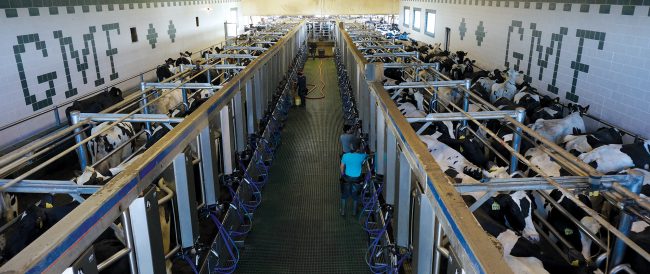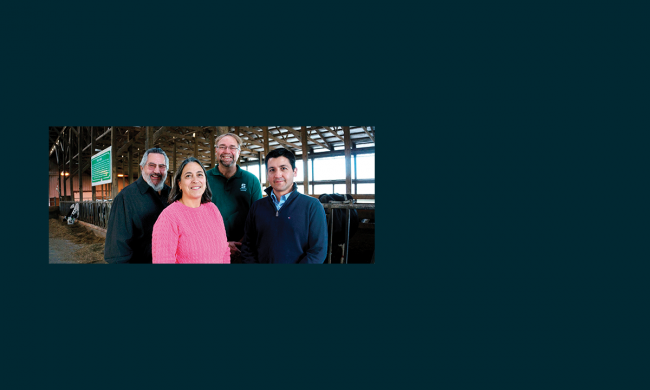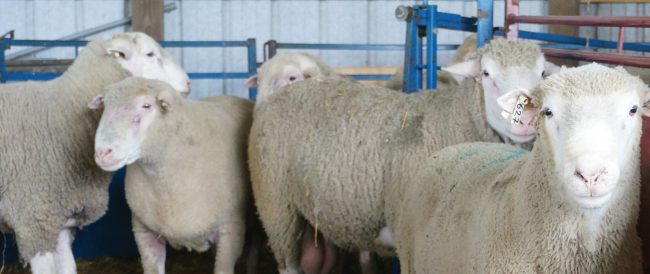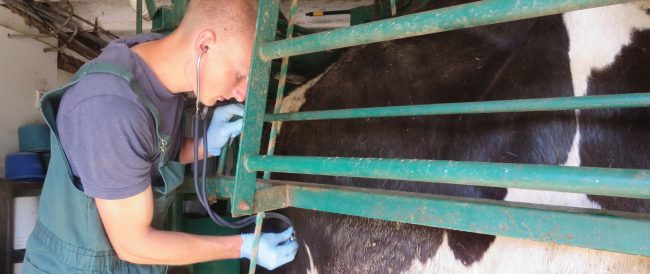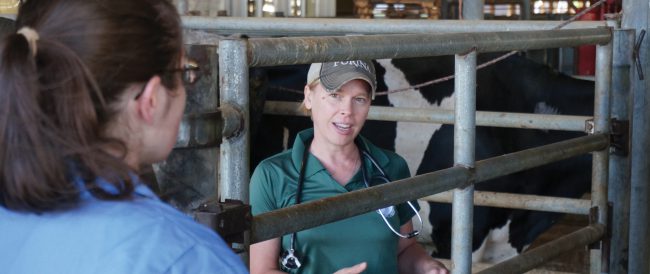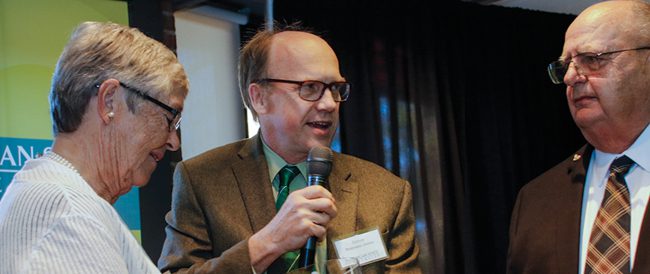 Read More
Read More
For the past 10 years, Dr. Adam Moeser has been investigating how early-life events—particularly the stressful ones, such as early weaning and production stress—can influence future health risks in swine.
“In the past, scientists have known that early-life adversity could cause some health issues, but they were understood as short-term problems that resolved,” says Moeser. “Today, we know that the opposite is true in that adverse early-life events can cause harmful effects that last into adulthood, thus having significant implications for animal health and productivity.”

These early-life events come in the form of standard farm management practices. Moeser, the Matilda Wilson Endowed Chair for the Department of Large Animal Clinical Sciences, is looking specifically at early weaning and social stress. In nature, pigs wean between three and four months. Most pork producers wean their piglets at around 18 days.
“Maternal separation, as well as separation from their siblings, so early is traumatic enough, but these piglets also are introduced to a new diet and environment,” says Moeser. “The new social status, surroundings, and nutrition all add up to an increased level of stress.”
Moeser and his team have found that early weaning of piglets can cause lasting perturbations in intestinal immune barrier functions, which in turn lead to a variety of health problems later in life, such as increased risk of gastrointestinal and respiratory diseases and reduced growth performance and feed efficiency. These problems translate to economic losses for producers: increased health care costs and reduced product yield.
“Diet and nutrition are hands down the largest expenses for pork producers,” says Moeser. “If the feed that producers use isn’t converted to pork efficiently, it becomes a significant economic loss.”
Now, Moeser is working to make new recommendations for producers that will focus on animal welfare while trying to maintain efficiency for producers. He and his team are working to define management options that can help lower early-life adversity for piglets with the goal of enhancing intestinal immune development and long-term disease resistance while keeping sows as productive as possible—mainly, by facilitating a stronger understanding of weaning complexity across the pork production industry.
“Humans experience similar consequences after early-life adversity, so working to affect change in the lives of pigs can only benefit us.”
— Dr. Adam Moeser
“If we can identify and define specific stressors, we can start to measure which have the most impact on piglets and work to lessen their impact,” says Moeser. “We’re working to see if we can reduce stress levels by modifying or eliminating just one stressor.”
Additionally, as the food production industry becomes more informed about the repercussions of antibiotic resistance, producers are moving away from using antibiotics as growth promoters. Changing the role of this tool will likely create a spike in diseases, making Moeser’s work that identifies new management strategies to promote immune development timely and critical.
Funded by the National Institutes of Health and US Department of Agriculture, Moeser’s work also is translatable to humans, who share many similarities in their gastrointestinal systems to those of pigs; in children, early-life adversity is an important risk factor for poor health throughout their lifespan.
“When we look at health across the whole lifespan of a pig, there are broader implications for public health,” says Moeser. “These early-life adversities program health trajectory in both species.”
After evaluating farm management practices, Moeser’s next step is to focus on preventatives and therapeutics. Moeser’s team is using advanced research techniques in the laboratory to study the impact of early-life adversity on the gut at a basic level.
“This approach will facilitate the discovery of new biological targets for therapeutic or nutritional interventions to improve porcine health,” says Moeser.
By contributing to a more thorough understanding of a pig’s biology, Moeser and his team can begin investigating ways to heal and protect pigs during critical periods of stress.
“At this point, because of the similarities between pigs and humans, we can start looking at more applications in human medicine for diseases like irritable bowel syndrome, inflammatory bowel disease, and food allergies,” says Moeser. “Humans experience similar consequences after early-life adversity, so working to affect change in the lives of pigs can only benefit us.”



